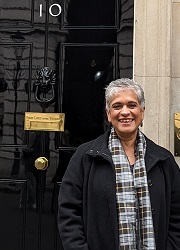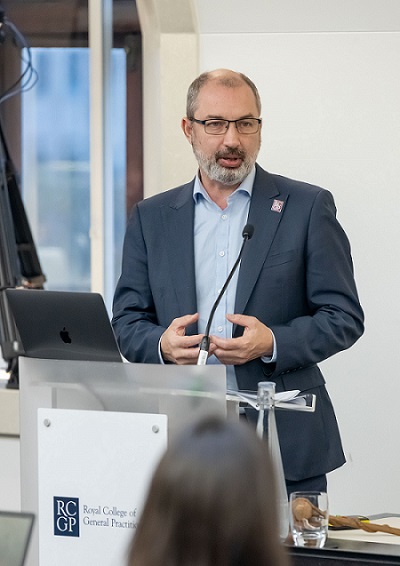

Supporting GPs and patients in Myanmar
In late January, the College hosted a parliamentary event in the heart of Westminster to launch our General Election Manifesto - calling on policymakers to adopt our seven solutions to rebuild general practice and safeguard the future of the NHS
Under the shadow of a newly refurbished Big Ben, MPs from across the political spectrum, came along to learn about the College's policy proposals, hearing firsthand from College Officers – all practising GPs – about how they would work and why they’re necessary to improve care for patients.

The event was hosted by Rachael Maskell MP, the Member of Parliament for York Central since 2015 and a member of the Health and Social Care Select Committee.
Rachael opened the event by recounting her personal understanding of the challenges facing medical professionals across the NHS, given her 20-year stint in the health service as a care worker and physiotherapist prior to her political career.
She explained the importance constituents place on an effective and seamless healthcare experience and the integral role GPs play in the heart of communities, as well as the benefit political parties would stand to gain by taking heed of the College's manifesto.
College Chair, Prof Kamila Hawthorne, brought home the gravity of the situation facing GPs, drawing on her own experiences on the frontline:
“As a salaried GP in a deprived area, I’ve seen how general practice has changed in recent years - especially the tsunami of work that landed on us a few months after the first Covid lockdown. In all my years as a family doctor I’ve never seen anything quite like it, and it has continued to this day.”
Kamila described her own experience of the impactful relationship GPs have with their patients and why sufficient time is needed to treat patients:
"There is a danger that without enough time I would have never been able to help patients like Bill, who first came to see me five years ago. A 56-year-old factory worker with severe anxiety, bullying problems at work and a disabled son who was disruptive at home. Bill needed time to talk."
She also highlighted the unique value of the GP-patient relationship and the value of providing continuity of care – something that public polling undertaken by the College reflected. Two thirds (66%) of the public said it was important to them to be able to book a GP appointment with a health professional they have met before.

Attendees at the event also heard from Jacob Lant, CEO of National Voices, the country's leading coalition for health and social care charities. Jacob spoke on the unity among all medical professionals in tackling the challenges facing the NHS and their willingness to work with politicians to come up with effective solutions.
He referenced National Voices' own manifesto - which aims to pioneer a cross-party strategy to improve life expectancy and reduce the impact of the cost-of-living crisis - and its close alignment with the College's objective to ensure the highest standards of patient care.
Kamila invited all MPs in attendance to take the opportunity to engage with the GPs at the event and hear their accounts. A broad spectrum of College members were in attendance, including Chairs of the College's First5, AiT and Later Career and Retired Members committees, Dr Toyosi Adeniji, Dr Akram Hussain and Dr Jude Danby respectively.
MPs in attendance took the opportunity to discuss the health challenges facing their constituents and patients, with GPs and College staff, and the actionable support GPs could be offered to improve the system and ensure a better experience for those in need.
MPs and political representatives were left with a solid understanding of the College's proposals to improve retention, recruit more GPs, improve general practice infrastructure, and reduce bureaucracy – and a crystal-clear message: general practice is the bedrock of the NHS and needs greater support if it is to survive.
Read more

Thank you for your feedback. Your response will help improve this page.


